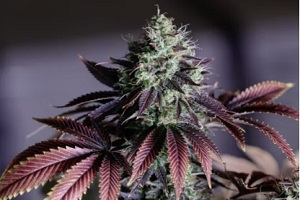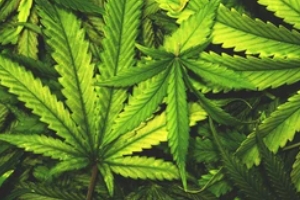What Is THCV and How Does It Differ from THC?
June 23, 2025Cannabis is rich in natural compounds, which produce numerous effects that consumers may be seeking. Some people try a cannabis strain for its therapeutic properties,...

 The evolution of cannabis’s popularity is still going strong around the world. When new information becomes available, it is essential to differentiate between facts, myths and misconceptions in order to reduce the likelihood of experiencing any adverse effects from cannabis use. This is especially important for young people and those who are trying cannabis for the first time.
The evolution of cannabis’s popularity is still going strong around the world. When new information becomes available, it is essential to differentiate between facts, myths and misconceptions in order to reduce the likelihood of experiencing any adverse effects from cannabis use. This is especially important for young people and those who are trying cannabis for the first time.
Cannabis is held in high esteem, and sometimes even contempt, by people worldwide. There is a considerable debate surrounding it. Here are ten cannabis myths that we’ve dispelled for you.
This statement comes with a warning. In the wrong hands, any substance can become addictive, even if it is not harmful to health or life. However, few people have ever become addicted to cannabis, despite its potential for addiction.
Cannabis is classified as a Schedule 1 drug in the United States. Anything can become addicting if consumed excessively. Still, research shows cannabis users are less likely to become addicted than cocaine and heroin users. Cannabis usage can result in a stunted dopamine response, and anyone can become psychologically hooked on the drug.
According to current research, one out of every eleven people has a marijuana addiction problem. Although the percentage is small, the danger persists.

Regardless of whether or not criminals smoke cannabis, most people use it to clear their heads: cannabis has stress-reducing properties. No one’s lifestyle choices are to blame for committing a crime.
Cannabis smoke contains cancer-risky carcinogens, similar to tobacco smoke. However, on average, even the most ardent pot smokers smoke far less per day than the average tobacco smoker, making it less likely to put their bodies at risk of cancer. Manufactured cannabis joints, furthermore, do not contain the deadly additives that are common to tobacco cigarettes.
Researchers at UCLA found no link between high marijuana usage and the development of lung cancer in their 2006 study. They were expecting to find a result that linked heavy consumption of cannabis to cancer. Instead, they discovered that there was no correlation at all and even a hint of a protective effect.
Several additional studies have found evidence that marijuana can slow tumor growth. Smoking has its hazards, but many other methods to take cannabis are less risky and more beneficial.
Generalizing is unfair and false because each strain and body type impacts everyone differently. People who lead active lives, such as athletes, artists, and writers, often consume cannabis as an energetic Sativa or calming CBD. The “couchlock” effect, when you’re confined to watching Netflix and sleeping, can be caused by certain strains of cannabis.

According to the Institute of Medicine, there is no clear evidence that the drug impacts of cannabis are causally connected to the consumption of other illegal drugs.
This is a common urban legend that spreads unfounded dread. After chronic and long-term use, cannabis may cause memory loss in certain people, although there is no evidence that cannabis harms brain cells.
However, there have been studies that suggest cannabis usage may impair short-term memory. It is safe for both you and your brain to relax.

The depressing properties of other medications, such as fentanyl, opioids, heroin and so forth, induce a lack of breathing, which is why you hear about overdoses from those drugs. Alcohol poisoning is another prevalent cause of death. Cannabis can potentially make you tired and lethargic at the very least.
In no way, shape, or form is cannabis healthy for children. When young people use cannabis, tobacco or alcohol while their brain is still developing, it may slow down their cognitive development.
It can lead to an increased percentage of students dropping out of school and poorer IQ tests. Under no circumstances should a young person experiment with any drug.
Cannabis use can damage your ability to make snap decisions, slow down your reflexes and cloud your judgment, all of which are essential components of safe driving. Evidence suggests that using cannabis could potentially double the risk of getting involved in an accident. This significantly raises the possibility that you will put both yourself and other people at risk if you drive while smoking cannabis.

You can consume cannabis in various ways to reduce anxiety, muscle tension, inflammation and nausea, as well as to promote mental well-being. We have a wide variety of cannabis strains at PureOasis. Visit our online store today and place your order.
Are you at least 21 years old?